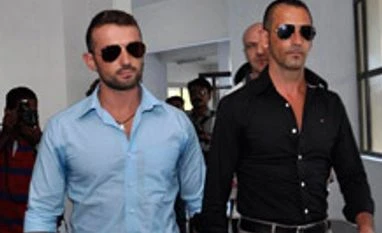“The 1961 Vienna Convention on Diplomatic Relations is a cornerstone of the international legal order and should be respected at all times. Any limitation to the freedom of movement of the ambassador of Italy to India would be contrary to the international obligations established under this Convention,” said Michael Mann, spokesperson of Catherine Ashton, High Representative of the European Union for Foreign Affairs and Security Policy and vice-president of the European Commission.
The EU hoped a “mutually acceptable solution can be found through dialogue and in respect of international rules and encourages the parties to explore all avenues to that effect”, said Mann.
Last week, India’s apex court had barred Mancini from leaving the country. Mancini had given a written assurance before the court guaranteeing the return of two Italian marines after they were allowed to visit their home country to vote. The marines were accused of killing two Indian fishermen off the Kerala coast.
Yesterday, the Supreme Court asked the Italian ambassador to stay in India till April 2, when the case will be taken up again for hearing.
Earlier, the Italian government had asked India to settle the issue “amicably” and said India had detained the marines “wrongly”. Italy has been maintaining that India had no jurisdiction over the case since the incident took place in international waters, a claim rejected by India.
According to officials involved with the issue, the undertaking given by the ambassador before the Supreme Court does not mean he is devoid of diplomatic immunity.
“He can leave India anytime — if he wishes to. India cannot stop him on legal grounds,” said an official.
Constitutionally, the Indian government is bound to carry out the orders of the Supreme Court.
)